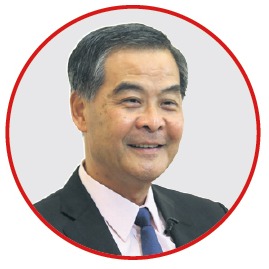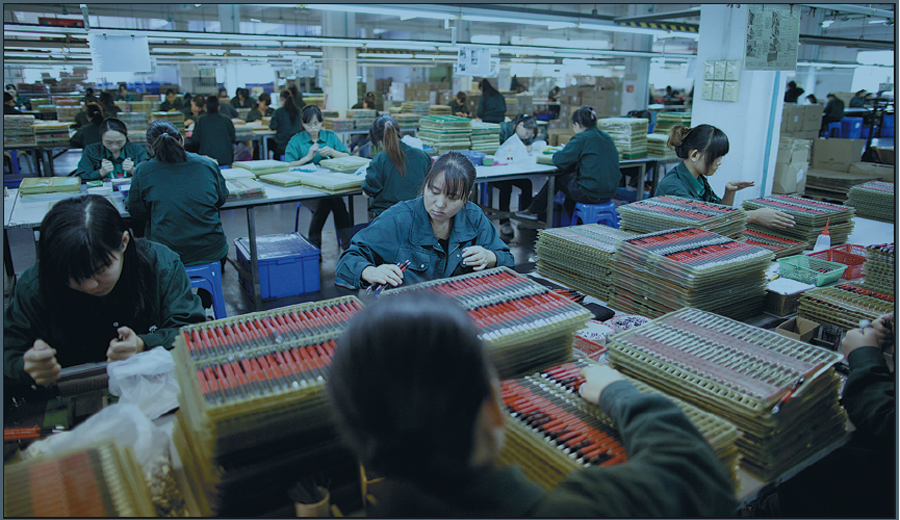
August 12, 1954, Hong Kong
EDUCATION:
1974-77: Bristol Polytechnic (now the University of the West of England), major in valuation and estate management
CAREER:
1983: Partner at Jones Lang LaSalle; president of the Hong Kong Institute of Surveyors; consultant to the steering group for Shanghai Pudong development; consultant to the steering group for Shanghai land-use reform; consultant to the steering group for Shenzhen land-use reform
1988: Secretary-general of the Basic Law Consultative Committee
1992: Hong Kong affairs consultant to the State Council's Hong Kong and Macao Affairs Office and Xinhua News Agency's Hong Kong branch
1993: Member of the Preparatory Committee for the Hong Kong Special Administrative Region
1996: Lawmaker of the Provisional Legislative Council
1997-2011: Executive Council convener for three consecutive terms
2012-17: Hong Kong SAR chief executive
2017-present: Vice-chairman of the National Committee of the Chinese People's Political Consultative Conference
Hong Kong's changing role in China's transformation

'Two-way springboard'
Leung never runs short of anecdotes about Hong Kong's involvement. In his eyes, the city's role changed as reform and opening-up gradually moved forward.
Hong Kong started by providing jobs, then channeling capital and technology. Today, it has become the place where mainland and foreign enterprises gather to work out deals.
"At the beginning, Hong Kong brought job opportunities to the vast mainland labor force," Leung said, referring to the time from 1979 to the mid-1980s, when the policy was in its early stage.
During that time, the "three-plus-one" trading mix was prevalent in Guangdong province.
It involved assembly work, making products based on provided samples, processing supplied materials, and compensation trade.
Guangdong was one of the first two provinces approved by the central government for direct foreign investment. Fujian was the other.
At the same time, Hong Kong's manufacturing industry experienced a boom. The skilled but inexpensive labor force and the proximity to Hong Kong drew manufacturers to Guangdong.
"When I lined up at the Lo Wu border in 1979, I noticed that many people held bags of semifinished products, like tailored clothes that needed further processing," Leung said.
Data from Hong Kong's Financial Services and the Treasury Bureau show that the city's manufacturing industry began shrinking around 1990. The number of enterprises engaged in manufacturing fell from 49,135 in 1990 to 26,536 in 1997, the year Hong Kong returned to the motherland.
Hong Kong's manufacturers moved their factories to the Chinese mainland. The city shifted its role and became the key source of investment capital.
July 15, 1993, saw Hong Kong's role in reform and opening-up experience another change, with Tsingtao Brewery becoming the first mainland company to list on the Hong Kong Stock Exchange.
"Hong Kong served as a capital pool, capable of satisfying the brewer's thirst for 900 million yuan (about $156 million at the time)," Leung said. He added that role was soon to change, with mainland enterprises growing stronger as reform and opening-up evolved in new areas.
"Now, Hong Kong is a two-way springboard, assisting mainland enterprises to go global and helping foreign companies seek business in the mainland," Leung said.
Hong Kong Monetary Authority data show that over the past four decades, Hong Kong has accounted for 50 to 60 percent of all overseas direct investment flows to the Chinese mainland.
The data also show that the mainland's outward direct investment reached $196 billion in 2016, with around 60 percent being invested in Hong Kong or channeled to other regions via the city.


